Leadership of conducting a meeting professionally
Learn how to plan, facilitate, and evaluate meetings that are productive, professional, and results-oriented. This comprehensive online course is designed to equip participants with the core skills and strategies needed to conduct effective meetings in both virtual and in-person settings. From agenda setting and stakeholder engagement to time management and post-meeting follow-up, the course provides a deep dive into the full meeting lifecycle. Whether you are managing internal team check-ins, client briefings, or cross-departmental planning sessions, this course ensures you have the competence and confidence to lead meetings that are structured, inclusive, and aligned with organizational goals.
What Does It Mean to “Conduct a Meeting”?
To “conduct a meeting” means more than just speaking in front of a group—it involves a systematic approach to communication, coordination, and leadership. This course unpacks the critical elements that make meetings successful, including establishing clear meeting objectives, preparing comprehensive agendas, selecting appropriate participants, and creating a conducive environment for discussion and decision-making. Emphasis is placed on active listening, managing group dynamics, and encouraging participation from all attendees. You’ll also explore how to handle disruptions, resolve conflicts, and keep discussions on track to avoid time-wasting and off-topic conversations. Special modules focus on minute-taking, assigning action items, and following up on agreed tasks to ensure accountability and progress tracking. By the end of the course, you’ll have a full understanding of how to lead meetings that deliver measurable results and contribute meaningfully to your team’s productivity.
Who Should Take This Course on Conducting Meetings?
This course is highly recommended for team leaders, supervisors, project coordinators, administrative professionals, and anyone responsible for managing collaborative discussions or strategic decision-making processes. It is also ideal for individuals preparing for managerial roles who want to develop strong interpersonal and organizational communication skills. Whether you’re in a corporate office, nonprofit environment, public institution, or running your own business, the ability to conduct a meeting efficiently is a critical soft skill that supports transparency, alignment, and informed decision-making. Participants will gain practical knowledge that can be immediately applied in real-world settings, fostering a culture of preparedness, accountability, and professional engagement. The training promotes confidence, clarity, and control—key attributes of a successful meeting facilitator.
Description
This unit standard introduces the junior manager to the preparation and procedures required in conducting a structured meeting to ensure that objectives are achieved. This unit standard is intended for junior managers of organisations. The qualifying learner is capable of preparing for a meeting, conducting a meeting, dealing with differing views in a meeting and distributing records of a meeting.
Course Content
Unit 1: Prepare for a Meeting
- Physical arrangements and attendees required for a meeting are identified, and a checklist is prepared and actioned in terms of Standard Operating Procedures.
- The purpose of an agenda, the expected outcomes of the meeting, the process of placing items on the agenda, and the roles of participants are explained in terms of Standard Operating Procedures.
- The purpose of recording a meeting is explained according to Standard Operating Procedures.
- Documents required for a meeting are checked for accuracy and completeness and distributed according to Standard Operating Procedures.
- The minutes of the previous meeting were checked for accuracy and completeness.
Unit 2: Conduct a meeting
- A meeting is conducted according to a preplanned agenda, and Standard Operating Procedures.
- Opportunities are created to allow effective participation by people attending the meeting.
- Discussions are summarised and recorded to indicate proposed action, completion date and person responsible.
Unit 3: Demonstrate techniques to deal with differing views during a meeting
- Identify techniques to overcome potential lack of progress due to differing opinions during the meeting according to recognised theory and practice.
- A technique is used to create progress in a meeting according to recognised theory and practice.
Unit 4: Distribute records for a meeting
- Records are compiled in such a way to enable the decisions of a meeting to be implemented.
- Records are checked to ensure that they are an accurate reflection, prior to distribution.
- The meeting is reviewed and suggestions for improvement are made to enhance the effectiveness of future meetings.
Accreditation
- Non-accredited: Short course only
- Duration: 1h 20m
- Delivery: Classroom/Online/Blended
- Access Period: 12 Months


